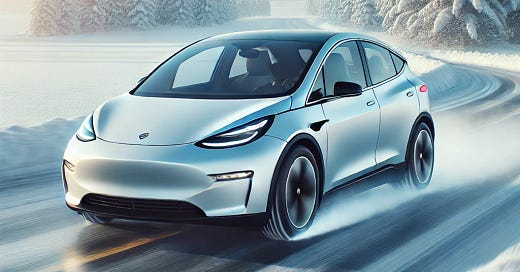A recent study from the University of Turku, Finland, reveals that electric vehicle (EV) ownership may not be as environmentally friendly as it seems. While EVs are often touted as a climate-friendly alternative to internal combustion engine cars, the reality is more complex.
Published in PLOS Climate, the research surveyed 3,857 Finns to explore how EV ownership affects overall carbon footprints. The findings suggest that wealthy EV owners might not be as green as they believe. Despite driving electric cars, their higher consumption levels—frequent flying, larger homes, and extensive shopping—offset many environmental benefits. So, buying an EV is just one small piece of the puzzle in saving the planet.
The issue doesn't end there. EV production, especially battery manufacturing, poses environmental challenges. Extracting rare earth metals like lithium, cobalt, and nickel is energy-intensive and environmentally harmful. Worse still, some of these materials are sourced from regions with questionable labor practices, so your “green” car might have a darker side. Also, charging an EV with fossil fuel-powered electricity significantly reduces its environmental advantages.
Then there’s the looming question of what happens to all those EV batteries when they’re used up. Without a proper recycling system, they add to the growing problem of e-waste, further diminishing the environmental benefits.
The study also shows that public perceptions of EVs vary widely. Those without direct experience of driving an electric car are more skeptical, often due to misconceptions about range, charging infrastructure, or performance. However, people with first hand EV experience generally have a more positive outlook. Personal experience, it seems, is the strongest factor in converting skeptics to EV enthusiasts.
In conclusion, while EVs play a crucial role in combating climate change, they're not a panacea. Simply switching from gas-powered to electric vehicles doesn't guarantee a smaller carbon footprint, especially for wealthier consumers. To make real progress in transportation greenhouse emissions we need to think bigger ewe need more than just EVs - cleaner manufacturing, greener charging energy sources, and improved battery recycling technologies.
Article Source: Sandman N, Sahari E, Koponen A (2024) But can it drive to Lapland? A comparison of electric vehicle owners with the general population for identification of attitudes, concerns and barriers related to electric vehicle adoption in Finland. PLOS Climate 3(10): e0000346. https://doi.org/10.1371/journal.pclm.0000346




